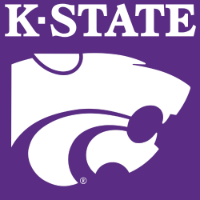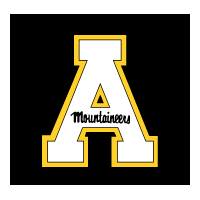What do they do?
Coordinate activities in resident facilities in secondary school and college dormitories, group homes, or similar establishments. Order supplies and determine need for maintenance, repairs, and furnishings. May maintain household records and assign rooms. May assist residents with problem solving or refer them to counseling resources.
Also known as:
Hall Coordinator, Hall Director, House Mother, Housing and Residence Life Director, Housing Director, Residence Director, Residence Hall Director, Residence Life Coordinator, Residence Life Director, Resident Advisor, Resident Assistant, Resident Director, Resident Life Director, Residential Advisor, Residential Assistant, Residential Coordinator, Residential Director, Residential Life Director, Student Development Coordinator
-
14.2%
Change
Ranks #19 in job growth rate460Job Openings
Ranks #16 in net job growth
-
University of Southern California
Los Angeles, CA
-
North Carolina State University at Raleigh
Raleigh, NC
-
DePaul University
Chicago, IL
-
University of South Carolina-Columbia
Columbia, SC
-
Appalachian State University
Boone, NC
Looking for colleges that offer a specific major? Use the College Match Tool to find your best-matched schools and discover your estimated Net Price!
- Doctorate or Professional Degree (1%)
- Master's degree (9%)
- Bachelor's degree (30%)
- Associate's degree (10%)
- Some college, no degree (24%)
- High school diploma equivalent (22%)
- Less than high school diploma (4%)
People in this career often have these skills:
- Social Perceptiveness - Being aware of others' reactions and understanding why they react as they do.
- Active Listening - Giving full attention to what other people are saying, taking time to understand the points being made, asking questions as appropriate, and not interrupting at inappropriate times.
- Speaking - Talking to others to convey information effectively.
- Monitoring - Monitoring/Assessing performance of yourself, other individuals, or organizations to make improvements or take corrective action.
- Coordination - Adjusting actions in relation to others' actions.
- Critical Thinking - Using logic and reasoning to identify the strengths and weaknesses of alternative solutions, conclusions, or approaches to problems.
- Negotiation - Bringing others together and trying to reconcile differences.
- Service Orientation - Actively looking for ways to help people.
- Time Management - Managing one's own time and the time of others.
- Persuasion - Persuading others to change their minds or behavior.
People in this career often know a lot about:
- Customer and Personal Service - Knowledge of principles and processes for providing customer and personal services. This includes customer needs assessment, meeting quality standards for services, and evaluation of customer satisfaction.
- Administration and Management - Knowledge of business and management principles involved in strategic planning, resource allocation, human resources modeling, leadership technique, production methods, and coordination of people and resources.
- Public Safety and Security - Knowledge of relevant equipment, policies, procedures, and strategies to promote effective local, state, or national security operations for the protection of people, data, property, and institutions.
- Education and Training - Knowledge of principles and methods for curriculum and training design, teaching and instruction for individuals and groups, and the measurement of training effects.
- English Language - Knowledge of the structure and content of the English language including the meaning and spelling of words, rules of composition, and grammar.
- Sociology and Anthropology - Knowledge of group behavior and dynamics, societal trends and influences, human migrations, ethnicity, cultures, and their history and origins.
- Administrative - Knowledge of administrative and office procedures and systems such as word processing, managing files and records, stenography and transcription, designing forms, and workplace terminology.
- Personnel and Human Resources - Knowledge of principles and procedures for personnel recruitment, selection, training, compensation and benefits, labor relations and negotiation, and personnel information systems.
- Therapy and Counseling - Knowledge of principles, methods, and procedures for diagnosis, treatment, and rehabilitation of physical and mental dysfunctions, and for career counseling and guidance.
People in this career often have talent in:
- Oral Comprehension - The ability to listen to and understand information and ideas presented through spoken words and sentences.
- Oral Expression - The ability to communicate information and ideas in speaking so others will understand.
- Problem Sensitivity - The ability to tell when something is wrong or is likely to go wrong. It does not involve solving the problem, only recognizing that there is a problem.
- Speech Clarity - The ability to speak clearly so others can understand you.
- Speech Recognition - The ability to identify and understand the speech of another person.
- Written Comprehension - The ability to read and understand information and ideas presented in writing.
- Deductive Reasoning - The ability to apply general rules to specific problems to produce answers that make sense.
People in this career often do these activities:
- Communicate with management or other staff to resolve problems.
- Monitor patron activities to identify problems or potential problems.
- Evaluate employee performance.
- Train service staff.
- Supervise service workers.
- Administer first aid.
- Monitor environment to ensure safety.
- Mediate disputes.
- Enforce rules or regulations.
- Inspect facilities.
- Develop plans for programs or services.
- Develop educational or training programs.
- Teach daily living skills or behaviors.
- Manage budgets for personal services operations.
- Inform individuals or organizations of status or findings.
- Collect information about clients.
- Enforce rules or policies governing student behavior.
- Perform administrative or clerical tasks.
- Provide counsel, comfort, or encouragement to individuals or families.
- Prepare administrative documents.
- Meet with coworkers to communicate work orders or plans.
- Accompany individuals or groups to activities.
- Maintain client information or service records.
- Assign resources or facilities to patrons or employees.
- Provide escort or transportation.
- Organize recreational activities or events.
- Order materials, supplies, or equipment.
- Deliver items.
- Store items.
- Package materials or products.
This page includes data from:

 Occupation statistics: USDOL U.S. Bureau of Labor Statistics Occupational Employment Statistics
Occupation statistics: USDOL U.S. Bureau of Labor Statistics Occupational Employment Statistics









